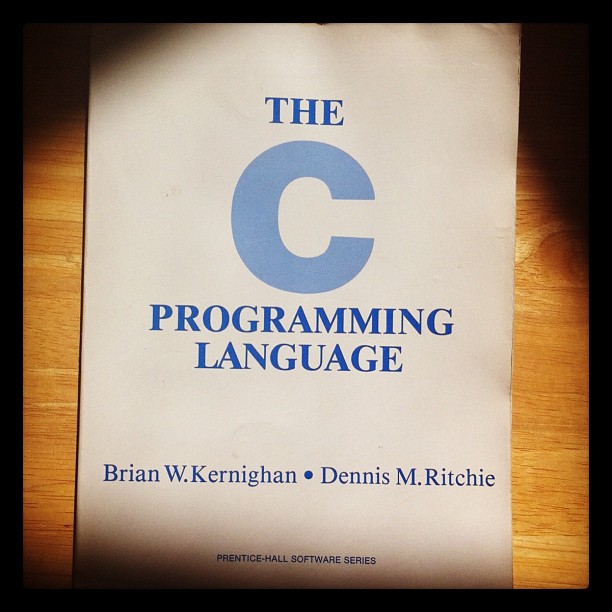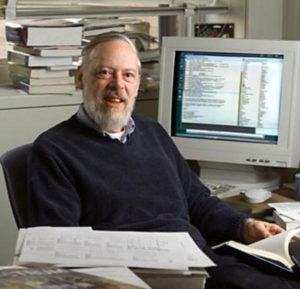Dennis Ritchie: Father of the Programming Language

As Wired’s Cade Metz points out, the deluge of praise directed toward Steve Jobs these past two weeks has almost completely evaded his lesser-known progenitor, Dennis Ritchie, who passed away October 12. Developer of the most ubiquitous programming language in existence, C, and the first (modern-type) OS, Unix, Ritchie’s creations underpin every single device Steve Jobs ever sold. It could be said that every modern device housing a microchip owes some degree of thanks to Ritchie’s C language.
That’s vast.
C was co-developed by Ritchie in 1969 and is still very much in use today. The code underpinning everything from web browsers to the network hardware supporting the internet are derivative of C. Smartphone software and the software that runs the cell networks are largely written in C as well. Linux and Mac OS X kernels are all C-derived. Even Bill Gates must give credit for his ever-successful OS to Ritchie, as Windows was first written using C. Its present status is not merely because it was the first high-level programming language or the first to reach mass critical appeal. It was masterfully designed, as evidenced by Ritchie’s and Kernighan’s reference work, The C Programming Language, still one of the best-selling, eminently readable books in the programming field.
The C language was used to develop Unix, which Ritchie also co-developed. Unix represented a departure from OSes of the time, which were written using exclusively assembly language and were typically tied to a certain set of hardware. Unix instead used hardware-independent, high-level language, meaning it was portable. And it was revolutionary at the time. The restrictive pairing between operating system and hardware dissolved, reducing switching costs for programmers. Adoption soared.
Perhaps the greatest aspect of UNIX’s appeal and its impact on today’s IT architecture is that it was open source. AT&T chose to give away the software for free. This and UNIX’s widespread demand led to multiple open source efforts in the 1980s. Colleges and universities across the U.S. were using it well before it gave rise to Windows and Mac OS.
Ritchie was awarded the Turing Award in 1983 and the National Medal of Technology in 1998. The computer science field has lost a legend.
“It’s really hard to overstate how much of the modern information economy is built on the work Dennis did. Jobs was the king of the visible, and Ritchie is the king of what is largely invisible.”
External Link: Dennis Ritchie: The Shoulders Steve Jobs Stood On
Feature image by Enric Teller



Comments